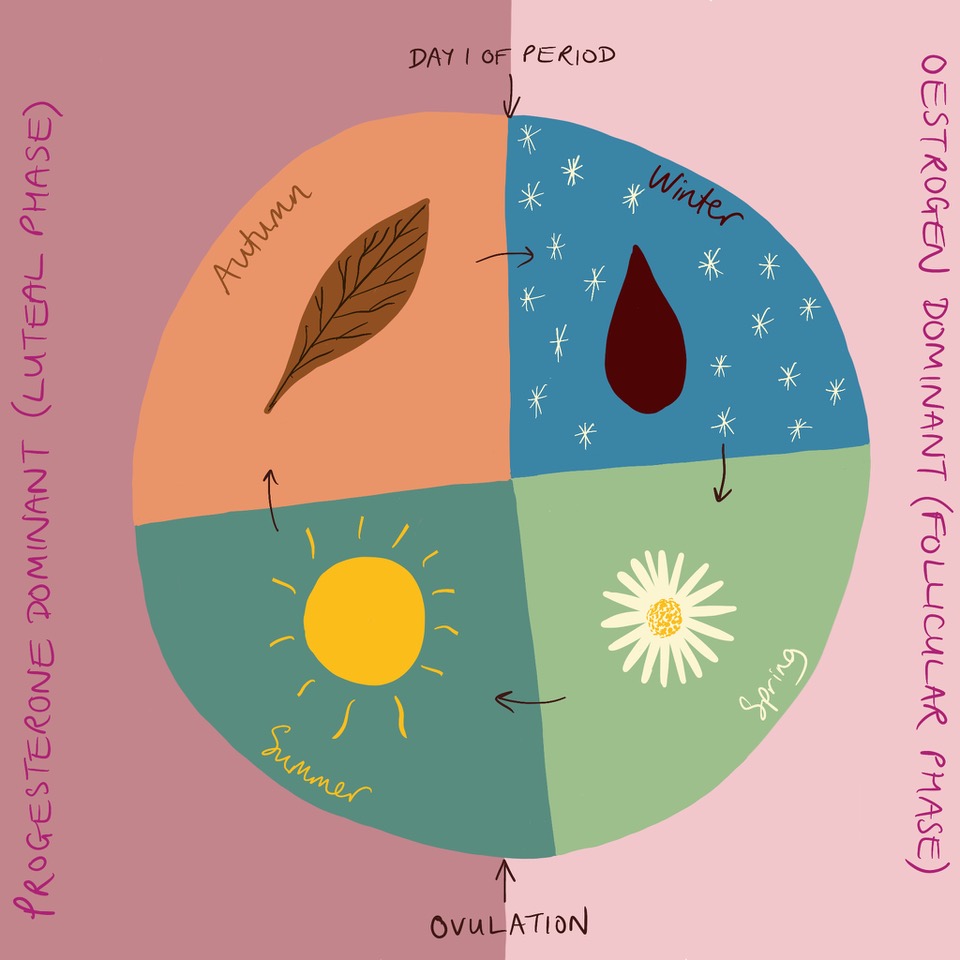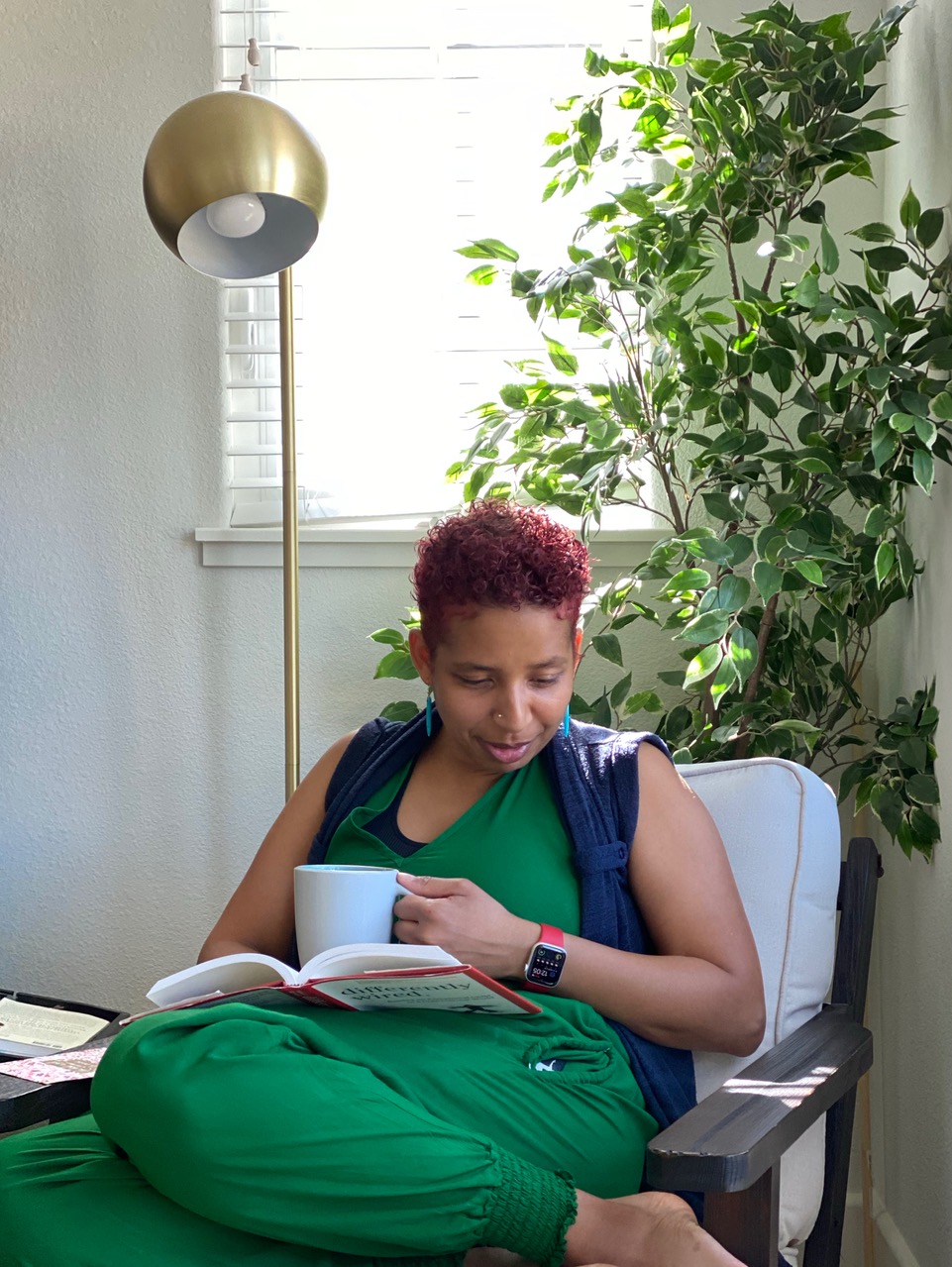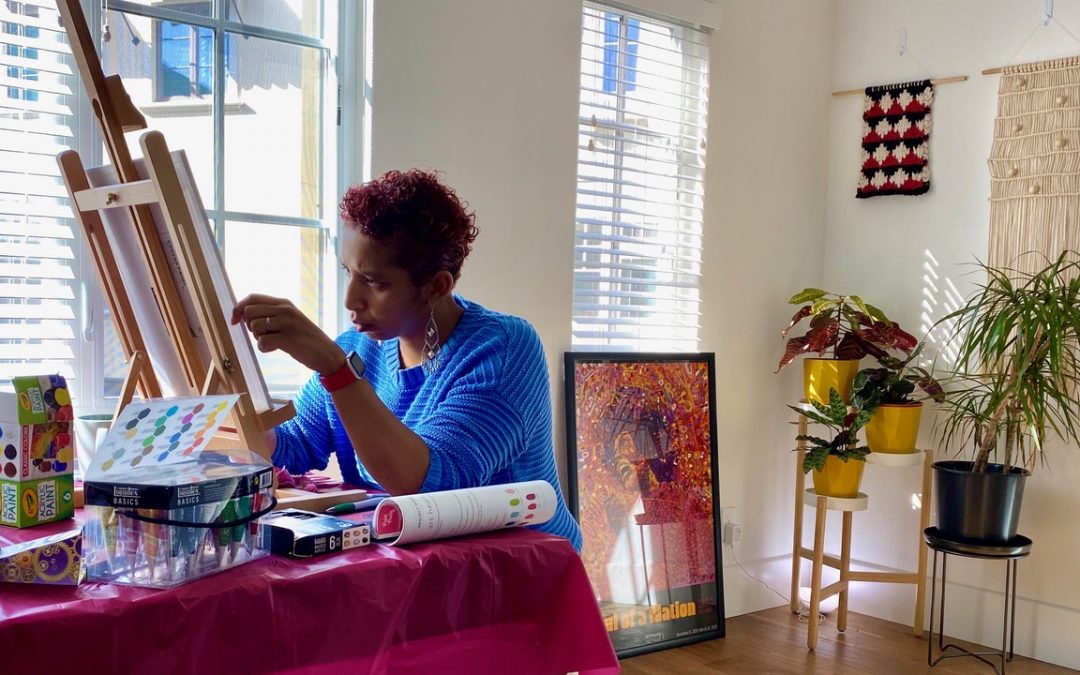It was moving day: my dad and then-boyfriend were helping me move a chest of drawers into my little red hatchback. Suddenly I lost my grip, a drawer opened and an endless stream of plastic-wrapped tampons poured out onto the pavement. Heat rushed to my cheeks, my dad made one of his specialty awkward jokes, and my boyfriend bent down to help me as I desperately rushed to hide them away again. Naturally, I went on to marry that man- anyone who helps you pick up your tampons off the pavement is a keeper!
Eleven years and two children later, I’m still unpacking the unconscious baggage around my own experience of menstruation, which began with the way it was talked about (or rather, not talked about) at home. I was almost 13 and getting ready for school when I reached menarche. I remember feeling anxious about telling my mum, mainly because we didn’t really have the shared vocabulary to facilitate that conversation. Before walking to the bus stop I endured a well-meaning but awkward lecture from my dad about the importance of avoiding pregnancy- as though a few spots of blood had transformed me overnight from a child into a potential liability. This history was a strong motivator for me to establish a new family culture.
My husband and I have always been deliberate about talking openly to our children (7 and 4) about their anatomy, bodily functions and bodily autonomy, so talking about periods sits naturally within that. We are an unschooling family, so we lean into the learning opportunities that everyday life presents. Conversations about menstruation may segue into wider conversations about sustainable period products, human reproduction and human rights, at a level that they can understand.
However, until recently I had thought about my cycle in a simplistic “one week on/three weeks off” manner, that failed to recognise its subtle shifts and harness its full power. Despite having been a menstruating woman for 24 years (including 14 as a medical student and then a doctor), I had never heard of the “seasons” of the menstrual cycle until I heard menstrual health expert Maisie Hill talking about the concept on a podcast (1). Her book “Period Power” (2) has transformed my relationship with my cycle and the way I function on a daily, weekly and monthly basis.

“In a world where menstruation is still associated with secrecy, shame and disempowerment for so many women and girls, it is an act of resistance to recognise, speak about and honour our own needs throughout our menstrual cycle.“

The “cycle strategy” helps us recognise and respond to physical, mental, behavioural and emotional changes that occur during the four “seasons” of the menstrual cycle. Documenting, or “charting” the duration, intensity and impact of our own seasons generates useful data which, over time, we can use to identify patterns and plan ahead for potentially difficult days.
Charting also enables us to use the strengths of each season to our advantage, and attain a healthy balance of work, rest and play throughout our cycle. It doesn’t have to take a lot of time – I just print out a blank 30-segment pie-chart from Maisie Hill’s website (3) each month, and write a few words in each day’s slice. Even this brief pause provides an opportunity to reflect and tune in to how I’m feeling.
Since having children, Autumn has become more difficult for me, bringing anxiety, irritability and a need to retreat into my own space.
Yet until recently I had never taken the next logical step and adjusted my Autumn schedule to prioritise rest, preferring to push through and try to do ALL the things (which never ended well). I encourage my children daily to listen and respond to their own bodily cues, so I need to do the same!
I now recognise Autumn as nature’s way of reminding me to wind down in preparation for Winter. I ensure the freezer is stocked and prioritise sleep over TV in the evenings. I keep my social diary as clear as possible, and occasionally need to rearrange things I over-zealously arranged in Spring or Summer, when multitasking and socialising felt easy. Daily yoga helps me keep things in perspective and stay mindfully active. It is useful to let your partner or close friends know when you need extra support or time alone. Self-doubt and Mum-guilt often make an appearance here: notice them and keep it moving!
In Winter my main issues are tiredness and occasional cramps, so again I prioritise sleep and keep ibuprofen and a microwavable heating pad nearby. I feel introspective in Winter, and once the kids’ basic needs are met, I can often be found reading, writing or scrolling through social media in my favourite chair in my bedroom. Just like in nature’s Winter, it’s a time to rest and get cosy.
In Spring I’m bursting with new ideas, keen to fully immerse myself in a range of creative pursuits like painting, knitting or writing poetry. In Summer I feel sensual and confident, so it’s a great time to see friends or go on date nights. I plan playdates or adventurous field trips in Spring or Summer, when I know I’ll be best able to meet the needs of two children (one of whom is autistic) in a new space.
In a world where menstruation is still associated with secrecy, shame and disempowerment for so many women and girls, it is an act of resistance to recognise, speak about and honour our own needs throughout our menstrual cycle. Let’s teach our sisters, daughters, nieces and friends to do the same.
References:
- Blaskey, Zoe (2019). Period Power with Maisie Hill. [The Motherland Podcast] Nov 7 2019. Available at: https://www.motherkind.co/listen-1/2019/11/07-ep80-period-power-with-maisie-hill
- Hill, Maisie (2019) Period Power. Green Tree, London
- Hill, Maisie (2020). Cycle Tracking Kit [online]. Available at: https://www.maisiehill.com/chartmycycle
Makeba Garraway is an unschooling mother of two, who moved across the world with her husband and children from London to Northern California in 2019. Formerly a medical Doctor and Mental Health & Wellbeing Advisor, she is now a budding creative who is passionate about self-directed education, green living, neurodiversity acceptance, tap dance, yoga and vegan food! Follow her on Instagram at @makeba_celeste and follow her family’s unschooling adventures at www.multiformity.life


Trackbacks/Pingbacks